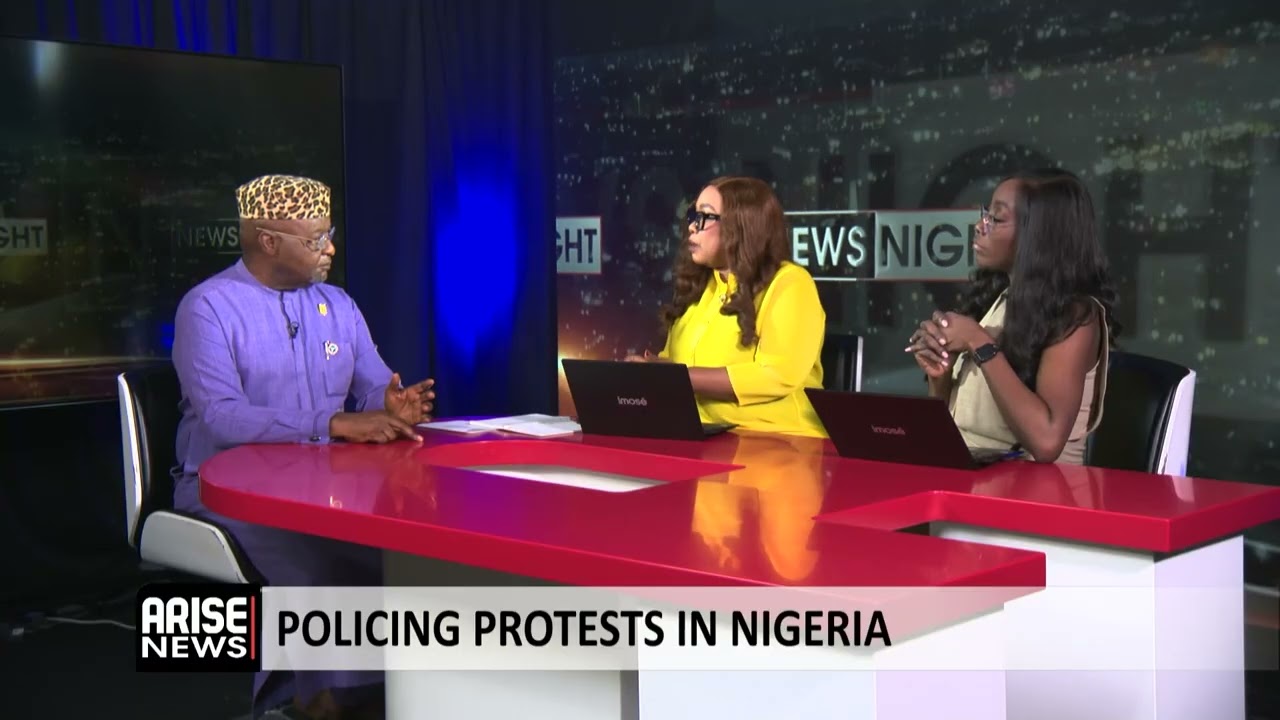
Public communications expert and Executive Director of Development Specs Academy, Professor Okey Ikechukwu, has said that the Nigerian Police must be retrained to understand that their duty is to protect the public space and citizens’ rights — including the right to peaceful protest — rather than suppress them.
Speaking on ARISE News on Friday about how best to manage demonstrations in Nigeria, Prof Ikechukwu said meaningful reform of the police must focus on “content and orientation, not buildings or equipment.”
“You can paint a building a million times and buy computers, but without a curriculum, no useful product will come out of it,” he said. “If we are going to invest in the training of police officers, it should be in their content — their understanding that a citizen has rights. Those rights include the right to say, ‘I don’t like this,’ in a peaceful and meaningful manner.”
He stressed that communication between protesters and law enforcement is crucial, noting that both sides often misunderstand the rules of engagement. “If I’ve indicated I want to protest and I’m allowed to protest, then when you come to interfere, you’re disrupting the line of communication and engagement already established,” he said.
According to him, protests in Nigeria often spiral out of control because of “too many forces at play — frustration, hunger, poverty, partial understanding of the issues, and sometimes youthful exuberance.” He said protests should be guided by mature leadership that understands all sides and ensures that demonstrations do not degenerate into public disturbance.
“You have a valid point of view and the right to express it,” he said. “But for that view to translate into anything, your country must first exist. So let not disturbance of public peace be part of the outcome of your protest.”
On the recurring clashes between protesters and the police, Prof Ikechukwu said while some blame the police for turning peaceful demonstrations violent, the issue reflects broader societal dysfunction. “When you say the police turn protests into violent exercises, it presumes that one party alone is not doing the right thing. The truth is, society itself has not changed so much. The same complaints we’ve had for years are still there,” he said.
He described the 2020 EndSARS movement as “a protest by elite Nigerian youth” that was well-organised but later mismanaged by authorities. “It was a protest by elite Nigerian youth. They came out to make a point about what they knew was wrong — SARS was becoming a menace. In that instance, it was the authorities who got it totally wrong by attacking the youth,” he stated.
He also noted that some protests become violent not because of protesters, but because “opportunistic criminals” infiltrate them. “Sometimes the flanks are broken not by protesters, but by criminals who take advantage. That’s why law enforcement often approaches protests with prejudice — assuming protesters will be violent, and so they go there prepared to be violent themselves, which is wrong,” he explained.
Prof Ikechukwu emphasised that democracy cannot thrive without protest, but the form of protest matters. “Every democracy allows protest, but the question is: in what form does your protest express itself? Protest can be dialogue — responsible exchange of viewpoints. Every day in the National Assembly, there’s protest through debate. But when protest becomes a form of presumptive superiority — where one side assumes it alone is right — that’s where the problem begins,” he said.
He urged government to prioritise comprehensive reform of police training institutions, including modernising the curriculum and retraining instructors. “What is critical is for the federal government to review the staff and faculty. Who are those teaching there? Some may need to go abroad for short refresher courses. We need content upgrade, not facility upgrade alone,” he said.
“The police must understand that their duty is to protect the public space. That protection includes allowing citizens to do anything permitted by law — and protecting them while doing so,” he added.
Prof Ikechukwu concluded that effective communication, respect for rights, and an enlightened police force are essential to preventing violence during demonstrations. “Police officers must see themselves as protectors, not predators. Once the police understand that, we’ll stop mistaking legitimate protest for public disorder,” he said.
Boluwatife Enome

